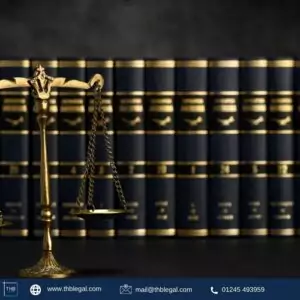Home / News / Coroner’s Inquests: Understanding the Process and Its Importance Coroner’s Inquests: Understanding the Process and Its Importance
Posted: 20 November 2024
A coroner’s inquest is a formal investigation into the circumstances surrounding a person’s death, particularly when the cause is unclear, accidental, or suspicious. This legal process plays a vital role in uncovering the facts, providing closure for families, and promoting public safety. It is especially critical in cases involving workplace incidents, medical negligence, or deaths in custody.
Having appropriate legal support during an inquest can help ensure that the process is fair and thorough, while also protecting your rights and interests.

What Is a Coroner’s Inquest?
An inquest is not a trial and does not assign blame or criminal liability. Instead, it focuses on determining:
- The cause of death: Was it due to natural causes, an accident, suicide, homicide, or unknown circumstances?
- The surrounding factors: These could include unsafe working conditions, medical oversights, or systemic failures within public institutions.
Coroner’s inquests often arise in cases that hold broader implications for public safety, such as deaths in the workplace, in police custody, or involving potential medical errors.
Why Coroner’s Inquests Matter
Inquests serve several critical purposes:
- Establishing the Facts
Inquests provide clarity about the cause and circumstances of death. For grieving families, this transparency can be a vital step toward closure. For others, such as employers or public authorities, the findings can inform necessary actions, including insurance claims or civil proceedings.
Example: In a case involving a fatal workplace accident, an inquest might uncover that inadequate safety measures contributed to the incident. This can lead to improvements in industry practices to prevent future tragedies.
- Promoting Public Safety
By identifying risks or systemic failures—such as unsafe work environments or inadequate medical protocols—coroner’s inquests often result in recommendations to improve public policies or regulations.
Example: Following an inquest into a death in police custody, the coroner might recommend better training for officers in handling individuals with mental health issues.
- Encouraging Accountability
Although an inquest does not determine legal liability, its findings can expose negligence, misconduct, or procedural gaps. These insights may prompt further investigations or legal actions, such as workplace reforms or personal injury claims.
The Coroner’s Inquest Process
- Initial Investigation
The coroner examines evidence such as medical records, autopsy reports, and witness statements to determine whether an inquest is required.
- Public Hearing
During the hearing, witnesses, experts, and legal representatives present evidence. This stage ensures transparency and allows interested parties to raise questions or concerns.
- Verdict and Recommendations
The coroner or jury delivers a verdict on the cause of death and may issue recommendations aimed at preventing similar incidents in the future.
Why Legal Representation Is Important
While the inquest process is designed to be impartial, it can be complex and emotionally challenging. Legal representation ensures that your interests are protected, and your voice is heard. Here’s how a solicitor can assist:
- Guiding You Through the Process
Solicitors can explain your role and responsibilities during the inquest, whether you’re a grieving family member, an employer, or a public authority.
- Challenging Inadequate Investigations
If the initial investigation misses critical evidence or appears incomplete, a solicitor can advocate for further inquiries and ensure all relevant facts are presented.
- Presenting Your Case Effectively
From questioning witnesses to introducing expert testimony, solicitors provide the expertise needed to navigate the hearing and ensure your concerns are addressed.
The Role of Solicitors for Different Parties
- For Families: A solicitor can help ensure that the inquest provides clear answers and addresses any concerns about how the death occurred.
- For Employers: If the death involves workplace issues, legal representation can clarify your obligations and help you respond to any recommendations or findings.
- For Public Authorities: A solicitor ensures that systemic issues are fairly examined and your organization’s position is effectively presented.
Conclusion
Coroner’s inquests are a crucial mechanism for uncovering the truth, ensuring accountability, and preventing future tragedies. Whether you’re seeking closure as a family member or addressing potential liability as an employer, having experienced legal representation can make a significant difference.
By guiding you through this challenging process, a solicitor ensures that the investigation is fair, thorough, and transparent. At THB Solicitors, our dedicated expert Matthew Taylor will support you every step of the way. Contact us today on 01245 493959 or send an email to learn more about how we can help protect your interests and achieve the answers you need.
